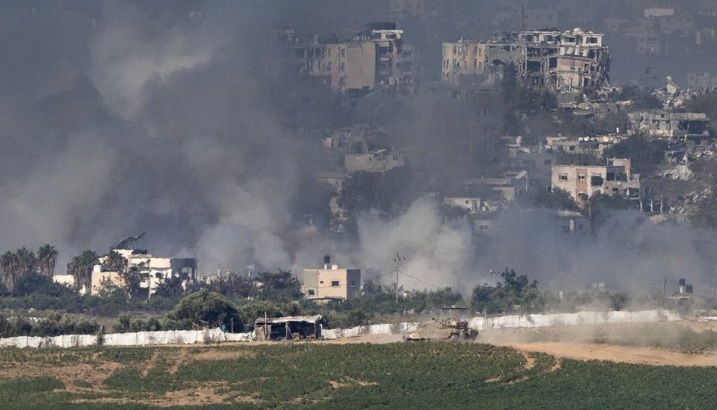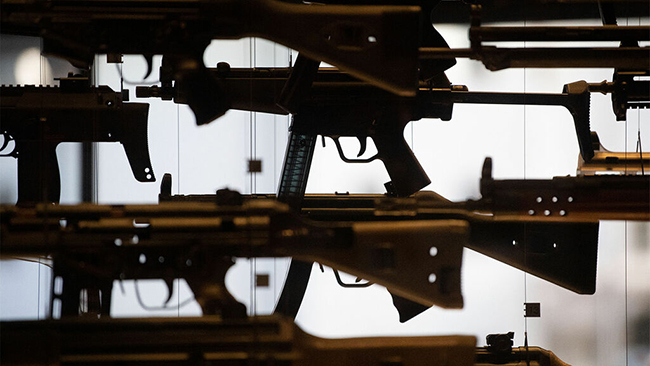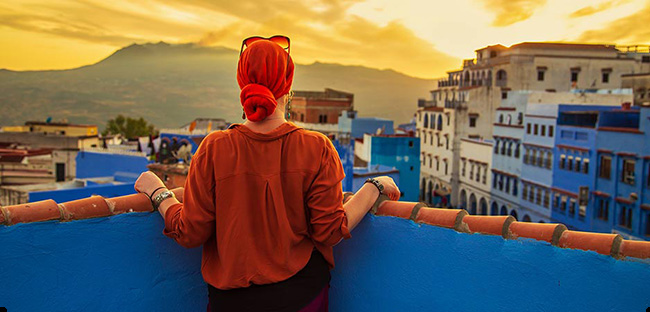Air strikes on the Gaza Strip killed a Hamas weapons maker and several fighters, the Israeli military said on Wednesday, as its air and ground offensive targeted the militants' tunnel network beneath the besieged Palestinian enclave.
Gaza City, the Hamas militant group's main stronghold in the territory, is encircled by Israeli forces. The military said troops have advanced to the heart of the densely-populated city while Hamas says its fighters have inflicted heavy losses.
With the war now entering its second month, United Nations officials stepped up their appeals for a humanitarian pause in the hostilities to help alleviate the suffering in Gaza, where buildings have been flattened and basic supplies are running out. Palestinian officials say more than 10,000 people have been killed, 40% of them children.
The level of death and suffering is "hard to fathom", U.N. health agency spokesperson Christian Lindmeier told reporters in Geneva.
"Every day, you think it is the worst day and then the next day is worse," Lindmeier said, quoting a colleague in Gaza.
Israel struck at Gaza in response to a Hamas raid on southern Israel on Oct. 7 in which gunmen killed 1,400 people, mostly civilians, and took about 240 hostages. The war has descended into the bloodiest episode in the generations-long Israel-Palestinian conflict.
Israel's stated intention is to wipe out Hamas, the Islamist group that rules Gaza, pounding it from air, land and sea while ground troops have moved in to divide the narrow coastal strip in two in fierce urban fighting amid the ruins of buildings.
The Israeli military said on Wednesday two separate strikes eliminated a leading Hamas armourer, Mahsein Abu Zina, and fighters engaged in anti-tank or ground-to-ground rocket fire.
Palestinian media reported clashes between militants and Israeli forces near al-Shati (Beach) refugee camp in Gaza City.
Reuters was unable to verify the battlefield claims of either side.
There was no further word from Israel on the possible fate of Yahya Sinwar, the most senior Hamas leader in Gaza and believed to be a key planner of the Oct.7 attacks. Israel said on Tuesday he had been cornered in his bunker.
Chief military spokesperson Rear Admiral Daniel Hagari said combat engineers were using explosive devices to destroy a tunnel network built by Hamas that stretches for hundreds of kilometres (miles) beneath Gaza.
Israeli tanks have encountered heavy resistance from Hamas fighters using the tunnels to stage ambushes, according to sources with Hamas and the separate Islamic Jihad militant group. Israel says 32 of its soldiers have been killed.
ISRAEL SEEKS 'INDEFINITE PERIOD' OF CONTROL
Israelis have voiced fear that military operations could further endanger the hostages, who are believed to be held in the tunnels. Israel says it will not agree to a ceasefire until the hostages are released. Hamas says it will not stop fighting while Gaza is under attack.
"I challenge (Israel) if it has been able, to this moment, to record any military achievement on the ground other than killing civilians," senior Hamas official Ghazi Hamad told Al Jazeera television.
"Gaza is unbreakable and will remain a thorn in the throat of the Americans and the Zionists," Hamad said.
The fighting is concentrated in the north of the Gaza Strip and Israel has told civilians to flee to the south, but it has been bombing southern areas as well. In the main southern city Khan Younis, Reuters saw ambulances bringing to a hospital the bodies of three Palestinians, including a young girl, killed in a house that was hit. The toll there could rise as ambulances went back to the site searching for more casualties.
Washington has backed Israel's position that a ceasefire would help Hamas militarily. But U.S. President Joe Biden said on Tuesday he had urged Prime Minister Benjamin Netanyahu to pause fighting for humanitarian reasons.
Nearly two-thirds of Gaza's 2.3 million residents are internally displaced, according to U.N. figures, with thousands seeking refuge at hospitals including in makeshift canvas shelters in their car parks.
Israel has so far been vague about its long-term plans if it achieves its stated goal of vanquishing Hamas. In some of the first direct comments on the subject, Netanyahu said Israel would seek security responsibility for Gaza for an indefinite period after the war. But officials said Israel is not interested in governing the enclave.
SAUDI CONVENES SUMMITS
Saudi Arabia will host summits of Arab and Islamic nations in coming days to discuss the Israeli-Palestinian conflict, a Saudi investment minister said on Wednesday.
Iranian President Ebrahim Raisi will travel to Saudi Arabia on Sunday for the Organisation of Islamic Cooperation summit, Etemadonline news reported, the first visit by an Iranian head of state since Tehran and Riyadh ended years of hostility under a deal brokered by China in March.
"The objective of bringing these...summits and other gatherings under the leadership of Saudi Arabia would be to drive towards peaceful resolution of the conflict," Saudi investment minister Khalid Al-Falih said at a forum in Singapore.
Iran is a sponsor of Hamas and applauded its attacks on Israel last month although it denies being behind them.
'NO FOOD, NO WATER'
At Gaza City's Al Shifa hospital, Um Haitham Hejela, a woman sheltering with young children in an improvised tent, said they fled their home because of air strikes.
"The situation is getting worse day after day," she said. "There is no food, no water. When my son goes to pick up water, he queues for three or four hours in the line. They struck bakeries, we don't have bread."
The United Nations says Gaza's health system is close to collapse, battered by air strikes, flooded with trauma patients, and running out of medicines and fuel.
There are 350,000 patients with chronic conditions in Gaza, including cancer and diabetes, as well as 50,000 pregnant women, according to data from United Nations organizations, and many are no longer receiving treatment.
"The longer we wait, the worse some patients will get. Many people will die merely because they have no access to treatment," said Osama Qadoumi, the supervisor at Makassed Hospital.
Source: Reuters






